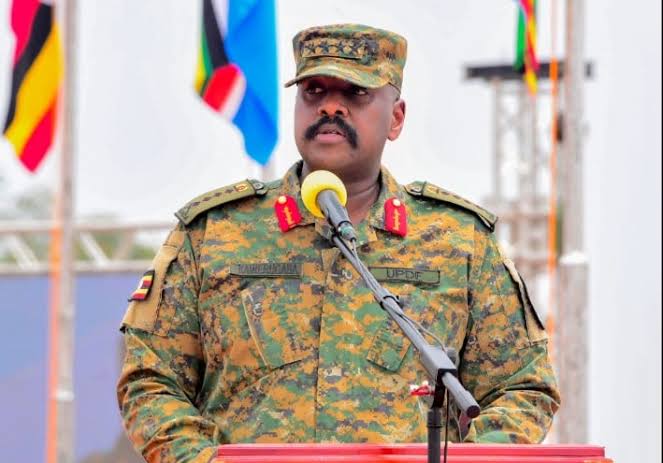Uganda’s army chief claimed on Sunday that his troops or the Rwanda-backed M23 armed group would enter the key Congolese city of Kisangani in the coming days.
Muhoozi Kainerugaba, who is also son of Ugandan President Yoweri Museveni, said either the Ugandan army or M23 would be in the city in “one week”.
The Rwanda-backed M23, a Congolese armed group, has seized control of large swathes of eastern Congo in recent months.
But it has not indicated plans to advance on Kisangani, a strategic city in the centre of Democratic Republic of Congo (DRC).
The M23’s closest position is the town of Walikale, some 450 kilometres (280 miles) away, and the group said earlier this week it would withdraw from Walikale to support “political dialogue” with the government.
Kainerugaba is known for provocative and unfiltered comments on Twitter and X that have occasionally caused diplomatic problems.
Uganda plays a complex role in the decades-long unrest in the eastern DRC, operating in other parts of the region at the behest of the Congolese government to tackle different militias.
But Uganda also has close ties with Rwanda, and Kainerugaba met with Rwandan President Paul Kagame on Thursday.
“Our people of Kisangani, we are coming to rescue you. God’s Army is coming!” Kainerugaba posted on X.
“In one week either M23 or UPDF (Uganda People’s Defence Force) will be in Kisangani. By order of Yoweri Museveni, Commander-in-Chief of UPDF!” he added.
The seizing of Kisangani by M23 would be a significant escalation of the conflict, taking the armed group much deeper into Congolese territory.
Kisangani is a commercial hub and a key transit point at the meeting of three rivers on the way from the east to the capital Kinshasa.
It would also be a major advance for Uganda, which has been operating in the eastern state of Ituri, whose capital Bunia is some 700 kilometres from Kisangani.
M23 has in the past threatened to march all the way to Kinshasa and overthrow the government of President Felix Tshisekedi.
Meanwhile, the M23 armed group on Sunday remained in the town of Walikale which it recently captured in eastern Democratic Republic of Congo, despite announcing it planned to withdraw to further peace talks.
The Rwanda-backed outfit announced on Saturday that it was “repositioning its forces” outside the outskirts of Walikale to help create the right conditions for “peace and political dialogue”.
At the same time, it said it would not allow government troops to return to the town, which is home to about 60,000 people.
On Saturday evening, Congolese soldiers said they would “observe with vigilance” the withdrawal and refrain from any offensive action, urging pro-government local militia to do the same “to encourage de-escalation”. Representatives of the government in Kinshasa and the M23 had been due to have direct discussions on March 18 in Luanda, the capital of neighbouring Angola, but they were cancelled at the last minute.
On the same day, DRC President Felix Tshisekedi and his Rwandan counterpart Paul Kagame “reaffirmed their commitment to an immediate and unconditional ceasefire” after a surprise meeting in Doha organised by Qatar.
On the ground, however, fighting has continued.
The M23 took control of Walikale on Wednesday evening. The town is located at the junction of two roads leading to Goma and Bukavu, which the group seized in late January and mid-February after a lightning offensive.
Goma and Bukavu are the main cities in North and South Kivu provinces, in the mineral-rich east, which has been blighted by conflict for decades.
Walikale is near gold deposits and the tin mine at Bisie, the world’s third largest in terms of production and where operations have been halted since mid-March.
By Agencies
Email your news TIPS to Editor@Kahawatungu.com — this is our only official communication channel


